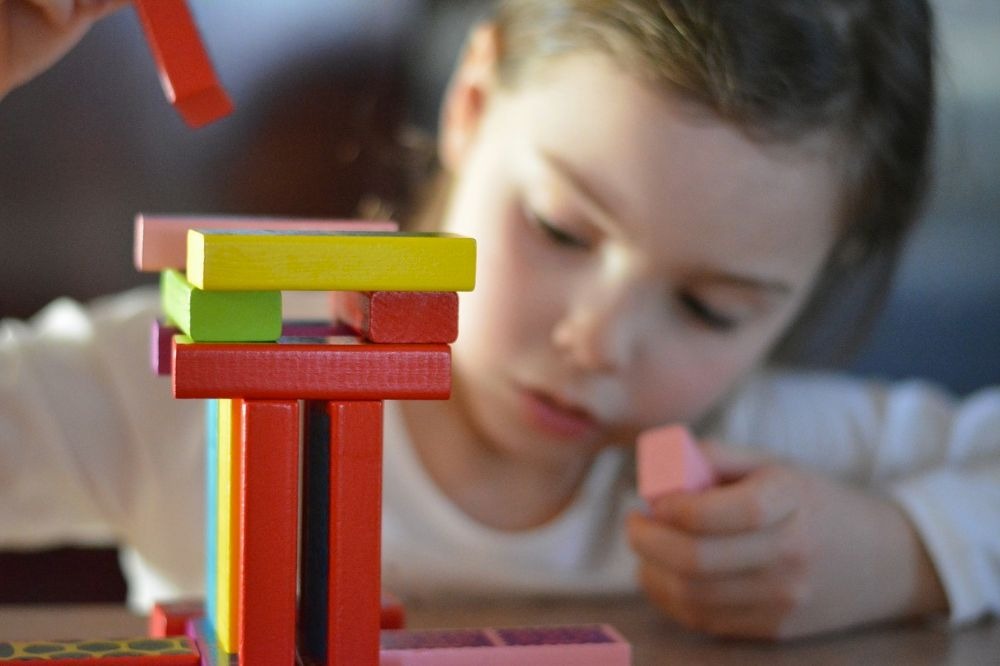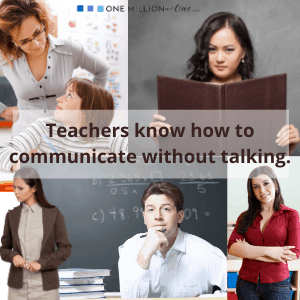AFFILIATE DISCLOSURE This website may contain affiliate links. If you click on one of my affiliate links and make a purchase, I may receive a commission for referring you. This comes at no additional cost to you. Please know that I only recommend resources I like and highly recommend.

When it comes to children, take a few tips from the experts. No, I’m not talking about Child psychologists or Pediatricians. I’m talking about the experts that are with your children all day long. TEACHERS!! Learn from Teachers. They are an unlimited wealth of knowledge and there are a lot of tips and tricks to learn from your child’s teachers. After all, they care for a multitude of children all day long and keep the area clean and organized in the process…How do they do that? So…what do they know that we do not?
Below are “10 Tips that you can learn from Teachers” that you can incorporate into your everyday life and help with your parenting process.
Teachers have an unlimited wealth of knowledge and there are a lot of tips and tricks that you can learn from them
1.) They teach responsibility from day one.

Every teacher will begin their educational year by teaching the children their expectations in a clear and concise manner. This process will differ with each teacher, however, the concept is the same. It will include respect for their room, the items in their room, their classmates, and of course their teachers. They will teach responsibility early by making sure that every child knows where all items belong and how to use them correctly. Teachers will reinforce that it is the children’s responsibility to make sure every item is put away properly and they will follow through with consequences if it does not happen. The same child that you can’t get to put away his shoes every day will be ecstatic and rush into the classroom to receive his new class job.
2.) There are immediate and appropriate consequences when the rules are not followed.
The nature of a classroom makes this process especially important. This does not mean a punishment but instead an opportunity for clarification and the understanding of why rules are important. For example, “Jimmy you cannot pull out the Legos until you put away the crayons that you were coloring with”. Then they follow through. Consequences are learning opportunities, NOT punishment.
3.) Teachers choose their words wisely.
Children should be spoken to, never spoken at! Every teacher knows that children will quickly dismiss and stop listening to your words if you don’t use them wisely. Do not yell or use a harsh or demeaning tone. Children are adults in the making and their words deserve attention and basic respect, and they need to respect your words as well, however, this is a learning process. They will be more open to listening to you if they believe that you genuinely care about them and their thoughts. It is extremely important not to talk down to a child, doing so will only have a negative outcome in one way or another.
Children should be spoken to, never spoken at.
4.) Teachers will get down to a child’s level.

For better results, when speaking to a child especially in important or emotional conversations, get down to their level. We can all learn from Teachers, they know that important conversations should be addressed eye to eye. It removes the intimidation factor and the helpless feeling that a child may have at that moment. It’s an easy trick, but it’s extremely beneficial in communicating with children.
5.) Teachers know the importance of organization
A great tip that you can learn from teachers is the art of organization. Look around a teacher’s room for tips and tricks on how to store everyday items. Teachers are geniuses at creating storing options and organization systems on a budget. Also take note of the teacher’s organizational expectations and follow up with the same process at home, because this will help you at home as well in the classroom.
Teachers are geniuses at creating storing options and organization systems on a budget.
6.) Teachers will use social influence to their benefit.

Teachers know how to use the influence of others to their benefit. Children are more likely to participate in activities if others do as well. This is important, especially if the teacher partakes, however, it is a fine line between a flock of sheep mentality and still keeping the child’s independent nature and individualism. Teachers know how to recognize and foster both elements. Children are more observant than we give them credit for. For instance, if you tell a child to always throw their trash away but then you let yours (the teachers) pile up on your desk, the child will ultimately realize that the rule does not really need to be enforced. Don’t ever have the “do what I say, not what I do” mentality. It does not work!
7.) Teachers will not help your child.
Well, at least not with everything. Teachers will encourage age-appropriate independence. They will expect the children to take responsibility for their own actions. As a result, teachers will foster self-independence in children and praise them when it is achieved and challenge them when it has not been met. They will not tie your child’s shoe without asking them to try first. Children can quickly be defined as having “learned helplessness”. You know the child that won’t put on their own jacket, they will ask an adult to help with their puzzle without even trying, or cry the second they are asked to put their toys away. Why? Because they have learned that it is easier to have someone else do it for them. We as parents need to encourage the do-it-yourself mentality. Obviously, at times this can be difficult, such as rushing out the door, but it is important to try to find as many opportunities as you can to foster independence. Praise their accomplishments and challenge their efforts. This is a great “Learn from Teachers” technique.
Teachers will encourage age-appropriate independence
8.) Teachers are not afraid to let your child fail.

This may sound harsh but actually it’s one of the most important things you can do to help your child learn and to become self-independent. For instance, it may be easier to help your child pull up their zipper instead of watching them struggle, but by doing so you are robbing your child from a crucial learning moment and process. A child needs to struggle and at times fail at a task at hand to learn the importance of being persistent. The pride of accomplishment goes a long way in developing drive and motivation. Extra praise for accomplishments has a lasting effect, however, at the same time recognition of the struggle and encouragement to continue is an important trait to instill.
The pride of accomplishment goes a long way in developing drive and motivation.
9.) Teachers know how to communicate without talking.

Teachers are masters of this technique. They know that you can grab the attention of an entire classroom of kids by not saying a word. For example, when a teacher is not talking, the children are usually watching to see what will happen with wide-eyed anticipation. A teacher can make an entire loud classroom stop in their tracks with a flick of the lights, a whispered word, or the sound of a stop clock. Think about that for a minute. Impressive!
Teachers can grab the attention of an entire classroom of kids without saying a word
10.) Teachers know the importance of children.

Teachers are a special breed. They know the importance of children and how much they can be influenced by proper education. They know that every child is full of potential, and it is their job to find it. The teaching field is one of the most undervalued and underappreciated fields. Many teachers teach for the love of teaching.
Teachers know that every child is full of potential, and it is their job to find it.

Teachers have a wealth of information that can help your everyday life run smoother. Ask a teacher a few tips and tricks here and there, just don’t inundate them with daily emails. Try observing when you drop your child off, or when you volunteer at the school. Ask your children…”what did you do in school today?”, usually you can learn a few tricks here also. If your child is acting out ask them …”what would Miss Johnson say if you did that in her classroom?” this is an interesting way to learn a few tricks to the trade.
Try incorporating these “10 Tips to learn from Teachers” into your everyday life. You will be glad you did.
Most of all, thank a teacher because they have taught your child a lot more than literature and math, they are teaching social skills, self-independence, and problem-solving skills.
Want to Share?

